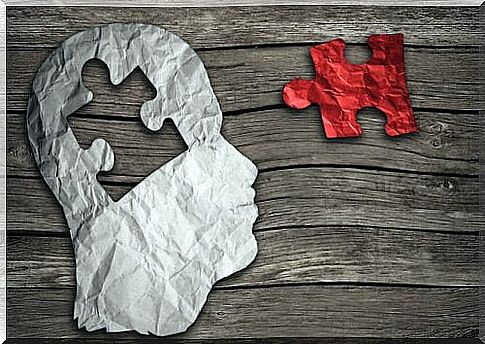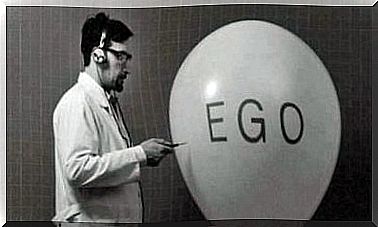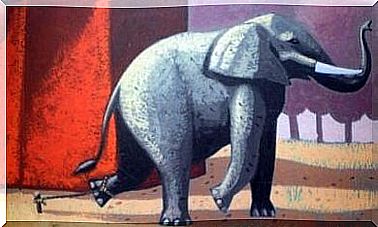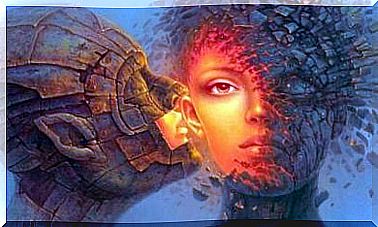The Differences Between Personality, Temperament And Character

Personality, temperament and character are three concepts used in psychology. They are used to describe different ways of feeling and thinking, so that they are closely related. But the shared similarities between the three often confuse people.
So you can learn to use the terms personality, temperament and character correctly. We will help you with that by simply explaining all three well. But before we look at the differences between the three, remember that temperament and character are part of personality. So they are both fundamental parts of this.
Temperament: the basics
Temperament is the natural part of your personality that comes from your genes. So it’s basically the genetic — that is, biological and instinctive — component of this. In fact, it is the part of our personality that will develop and express itself first.
You can even see the different shapes a temperament can take in babies. For example, some babies are more likely to feel and express positive emotions, while other babies are more likely to experience negative emotions. Some will be more often in a good mood or in a bad mood. In behavioral terms, we often refer to these as ‘easy babies’ or ‘difficult babies’.
Because it’s genetic and part of your inherited traits, temperament is hard to adjust, manipulate, or change. Somehow, temperament will always be there. However, that does not mean that you cannot make the effort to, for example, resist certain (adverse) tendencies.
If you were an iceberg, your temperament would be the part that stays underwater. That means you can control it to some degree, especially by manipulating the part of the iceberg that sticks out of the water.

Hippocrates and Galen: The Humores
Hippocrates was a physician from the time of the Ancient Greeks. His theory of the four humors was one of the first to try to explain the term ‘temperament’. He thought that a person’s personality and health depended on a balance between four different juices. It was bile, black bile, phlegm and blood. He called these ‘swearing humors’.
Centuries later, Galen of Pergamon took this Hippocratic idea to a new height. He named four types of people based on the four humors:
- Choleric people (abundance of bile): passionate and energetic people with a short fuse.
- Melancholic people (abundance of black bile): Sad people who are easily upset and are artistically inclined.
- Phlegmatic people (abundance of phlegm): cold and rational people.
- Sanguine people (abundance of blood): happy, confident and optimistic people who show their affection quickly.
Character: the reflection of your experiences
This is a part of your personality that considers both temperament (inherited traits) and the behaviors you have learned. That is, it is both a natural component of your personality and a learned component.
It is also a result of the experiences and social interactions in your life, from which you will have learned a thing or two. As a result, these habits influence your temperament and your biological predisposition. They also adapt and refine this predisposition, giving your personality its own shape. Character therefore also has its roots in your culture .
It’s not as stable as your temperament. This is because it is not genetic and does not show itself in your early stages of development. In fact , it has many stages and forms especially during adolescence. That is why you can also influence this and make changes to it — through social education, for example. People often confuse this term with “personality” these days, so it’s very common for people to use the two identically.
Personality: biology and environment
Personality consists of character (temperament and learned habits) and behavior. This means that it includes both of these things at the same time . This connection also makes it easier to describe the differences between personality, temperament and character.
Personality cannot therefore be seen solely as a product of genetic heredity. It is also a result of the influences from your environment. It is something that sets individuals apart, meaning it is typical of each person. In addition , it remains stable for a longer period of time and under different conditions according to multiple studies.

Defining personality, temperament and character
In psychology, personality is defined as a group of emotions, perceptions and actions that comprise a person’s behavioral patterns. It is the way you feel, think and act. It is a group of processes that work together, regulate each other and together form a dynamic system. The two most commonly used and accepted definitions in psychology today are:
- ‘Personality is the sum total of an organism’s behavioral patterns (current or potential), determined by genetic and environmental factors’. Hans Eysenck (1947).
- “Personality encompasses the typical patterns of behavior (including emotions and thoughts) that describe a person’s adaptation to life events.” Walter Mischel (1976).
But there is no single, clear definition of what personality actually is. That’s because it’s a complex system and there are as many theories as there are theorists and schools of thought. Each philosophy or theory follows a thinker’s own vision and concept. They all show a certain form of resemblance, but they also have their differences. However, they also all have one thing in common: they assume that there is a specific pattern in everyone that leads to a certain constancy in their behavior under comparable situations. There are, of course, many variables that can form such a pattern.
These variables are given different names depending on current trends: trait, matter, parts, traits… The main things that maintain the richness of psychology and personality are theories, studies and investigations. This is especially true when these contributions are bundled.
Personality, temperament and character are different concepts. However, you can find their value in the differences between them. Ultimately, they are able to teach you to understand your own behavior and you can use them to predict your behaviour.









